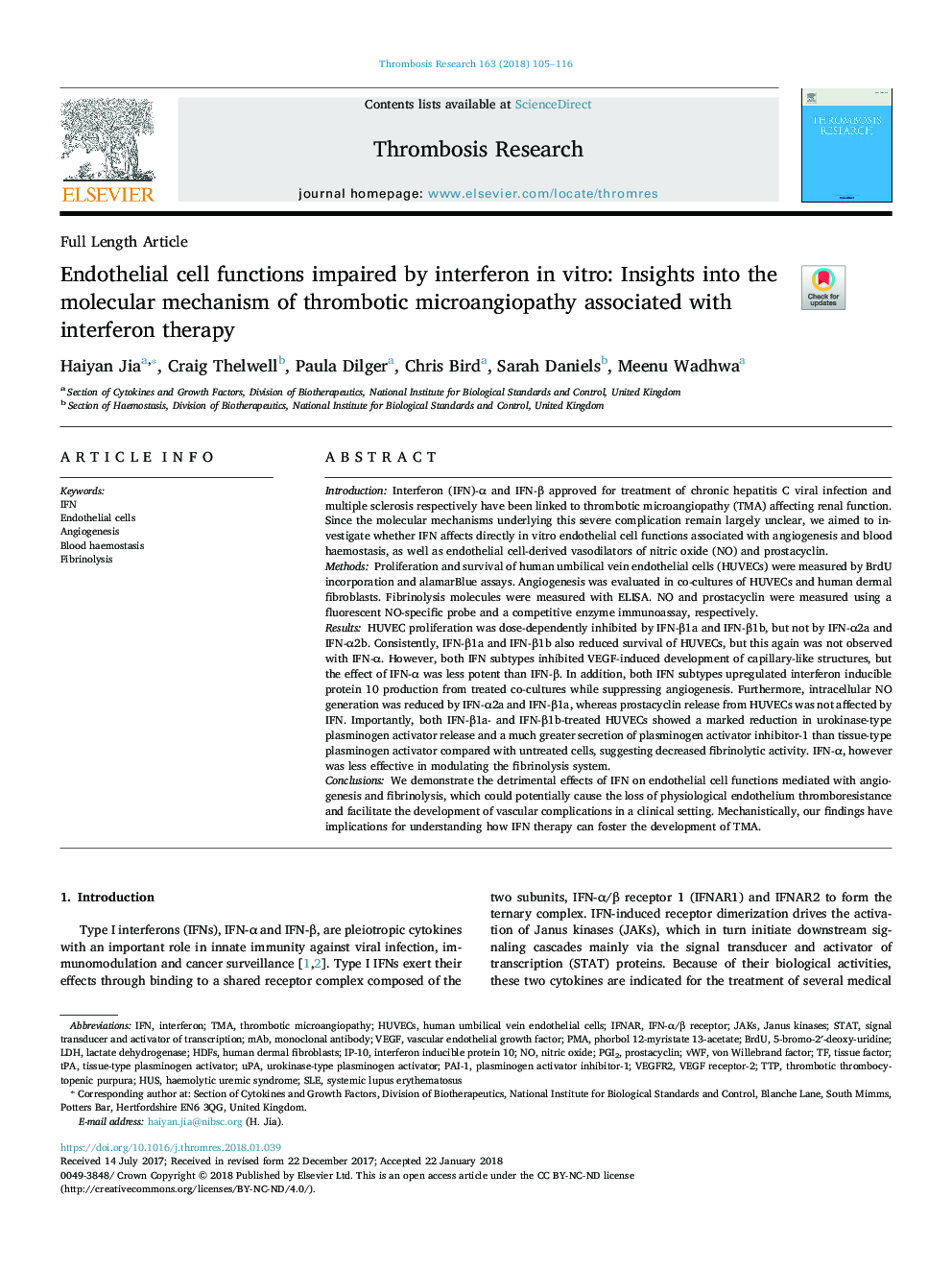| Article ID | Journal | Published Year | Pages | File Type |
|---|---|---|---|---|
| 8679652 | Thrombosis Research | 2018 | 12 Pages |
Abstract
We demonstrate the detrimental effects of IFN on endothelial cell functions mediated with angiogenesis and fibrinolysis, which could potentially cause the loss of physiological endothelium thromboresistance and facilitate the development of vascular complications in a clinical setting. Mechanistically, our findings have implications for understanding how IFN therapy can foster the development of TMA.
Keywords
uPAVEGFR2vWFIFN-α/β receptorHUVECSVEGF receptor-2PAI-1tPATMAIP-10TTPHDFsmAbPGI2IFNARJAKsPMASTATMonoclonal antibodyAngiogenesisinterferonIFNBrdUThrombotic thrombocytopenic purpuraHUSHuman umbilical vein endothelial cellsEndothelial cellsHaemolytic uremic syndromeTissue factorVon Willebrand factorVascular endothelial growth factorVascular Endothelial Growth Factor (VEGF)Tissue-type plasminogen activatorurokinase-type plasminogen activatorHuman dermal fibroblastsFibrinolysislactate dehydrogenaseLDHSystemic lupus erythematosusSLESignal transducer and activator of transcriptionPlasminogen activator inhibitor-1thrombotic microangiopathyNitric oxideprostacyclinJanus kinases
Related Topics
Health Sciences
Medicine and Dentistry
Cardiology and Cardiovascular Medicine
Authors
Haiyan Jia, Craig Thelwell, Paula Dilger, Chris Bird, Sarah Daniels, Meenu Wadhwa,
